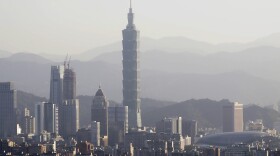The issue of international trade has taken a lot of attention of the Trump Administration in its first four weeks. And while tariffs have been one focus, some trade partners are hoping their investments in the United States may make a difference in negotiations.
Taiwan's president is promising more investment in the United States.
But there's a complication.
Taiwan Semiconductor Manufacturing Company, or TSMC, is Taiwanʻs largest company by market value and is a global leader in the production of chips.
TSMC has committed to investing $65 billion in three manufacturing facilities in the United States — the largest overseas investment the company has ever made.
Part of the reason for that financial commitment was a $6.6 billion government subsidy made under the Biden administration — a program the Trump administration wants to overturn.
Investment questions also surround planned deals involving the production of electric vehicle batteries — an area where South Korea has been a global player.
SK On and Hyundai Motor Group are building a $5 billion EV battery cell plant in Georgia, which is expected to start production later this year.
Part of that investment was spurred by a production tax credit under the Inflation Reduction Act, a 2022 law President Trump wants to change.
Japanese companies also made battery-related investments under the Inflation Reduction Act.
Panasonic is scheduled to begin production next month at a $4 billion plant in De Soto, Kansas.
Right now, prospects for future investments like these remain stalled — with a future that's uncertain.




